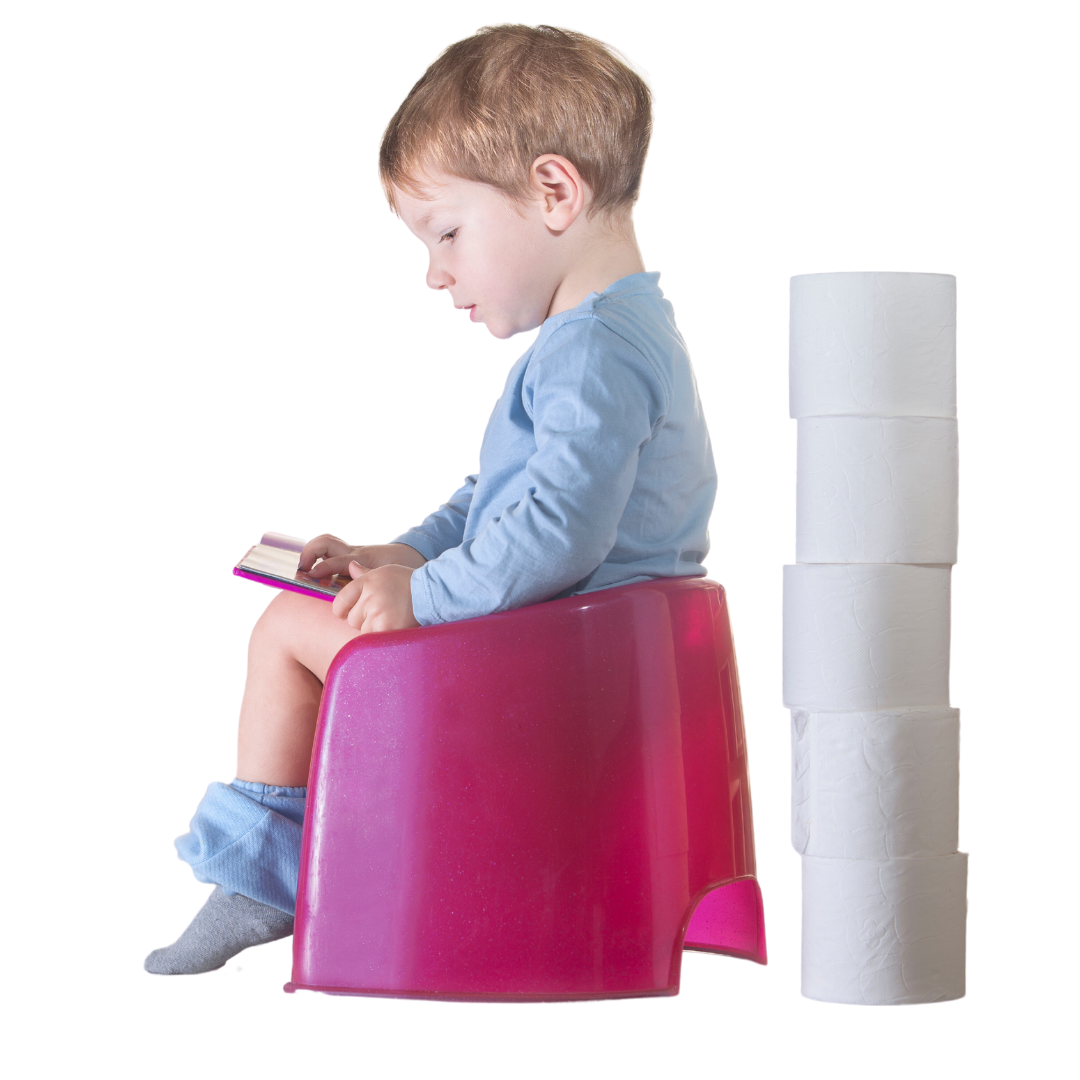By Erica Desper
•
February 26, 2025
While springing forward is not quite as disruptive as falling back on the clock, it can leave your little ones feeling “off” for a few days. Don’t panic! Even the most sensitive children can adjust. Her e are some tips to help your family prepare and adjust to any time change: An overtired child has a harder time adjusting and coping with any change. Make a special effort in the days approaching the time shift to ensure that your child gets adequate sleep . When the clocks change in either direction, be sure to head outside with your baby first thing in the morning or at least open the curtains and let in the natural light. Early morning exposure to natural light helps to set/reset your child’s internal clock and adjust to the change. Aim for 30 minutes of sunlight each morning for about a week following the change. Also be sure to “put the house to sleep” by dimming lights and activity about 30-60 minutes before the goal sleep time to prepare their brain and body to fall asleep earlier. There are a few ways to approach springing forward. You can decide which to use based on how the current schedule is working for you and on your child’s level of sensitivity to differences in timing. Option 1: Do Nothing (Great for Early Risers!...And Very Young Babies) If your older baby or child is waking too early and this is leading to a schedule that is less than ideal, this is the time change for you! You can use the later morning wake time to shift nap(s) and bedtime to the later timing you’ve always wanted. For example if the schedule prior to the time change was wake at 5:30 am, nap at 11:30 am, and bedtime at 6:30 pm, it would now look like wake at 6:30 am, nap at 12:30 pm and bedtime at 7:30 pm. The span of awake times between sleep remains the same so your child won't likely notice the difference. Voila! For young babies who are not yet on a set clock schedule (under 4-6 months of age) and, instead, need to sleep every 60, 75 or 90 minutes, simply follow that pattern and act as if nothing has changed. Option 2: Jump to the New Clock (Ideal for Adaptable Kiddos) If the current schedule is working for you and your child, your goal is to get back to those clock times – but on the new clock- as quickly as possible. This requires waking your child at their typical wake time on Sunday morning and offering meals, naps, routines and bedtime at the same times on the new clock as you were before. Keep in mind, however, that everything will feel a full hour earlier to your child (because it is!) so there is a potential for a bit of a struggle falling asleep. For example, if bedtime is usually 7 pm you would put baby down at 7 pm on the new clock but it may feel like 6 pm to them. As a result, they may not fall asleep as quickly or easily. You may need to be a bit more flexible and offer some extra support at bedtime but with this method they should adjust rather quickly – typically within a few days to a week. Be choosy about how much support you offer (if any) and how long you offer it. Meaning, avoid old habits that have been eliminated such as fully assisting to sleep in favor of lesser interventions such as checking on baby briefly at intervals. If you know your child is prone to unpleasant behaviors when they are under tired (i.e. coming out of bed a bajillion times at bedtime!) you may want to consider shifting their schedule in advance. Option 3: Prepare 4 or More Days in Advance (Ideal for Very Sensitive Kiddos, Not Usually Necessary) If your baby tends to be more sensitive to shifts in timing, you may want to prepare for the change by gradually shifting their schedule in advance. This approach spreads the hour difference over at least four days which, in our experience is not usually necessary for the spring change. For example, starting on Thursday morning wake baby 15 minutes earlier than usual* to start the day. Then offer meals, naps, and bedtime 15 minutes earlier as well. On Friday wake baby 15 minutes earlier than you did on Thursday (30 minutes earlier than usual) and repeat this process on Saturday and Sunday. For a baby who generally sleeps from 7:30 pm-7 am and naps at 9am and 1pm, for example, you would wake at 6:45 on Thursday morning, move naps earlier to 8:45 and 12:45 and put them to bed at 7:15. Then on Friday wake them at 6:30 and put them to bed at 7:00. On Saturday wake them at 6:15 and put them to bed at 6:45. By Sunday when you wake them at 6 am it will read 7 am on the new clock and you will be back to their usual clock schedule, without it feeling a full hour early. Wednesday: Wake 7:00am, Naps 9:00am & 1:00pm, Bedtime 7:30pm Thursday: Wake 6:45am, Naps 8:45am & 12:45pm, Bedtime 7:15pm Friday: Wake 6:30am, Naps 8:30am & 12:30pm, Bedtime 7:00pm Saturday: Wake 6:15am, Naps 8:15am & 12:15pm, Bedtime 6:45pm Sunday: Wake 7:00am (on the new clock), Naps 9:00am & 1:00pm (on the new clock), Bedtime 7:30pm (on the new clock) If you are unable to shift the schedule in advance, or want to spread it over two days rather than four, use the split the difference option. Option 4: Split the Difference (The Most Realistic Option for Many) If all that advanced shifting and waking seems unnecessary or feels too complicated but a one hour jump feels like too much, then you may fall into the camp of splitting the difference and taking just two days to catch up to the new clock. For example, let's say baby usually wakes at 7am, naps at 9am & 1pm and goes to bed at 7:30pm. To spread the hour change over just two days, wake them at 7:30am on Sunday and put them down for their nap 30 minutes later than usual* at 9:30. They will be only 30 minutes under tired rather than the full 60. Do the same with all other meals and sleep periods throughout the day. Then the following day shift 30 minutes more so everything is happening at their typical times on the new clock. Or, for a non-napping child whose bedtime is 8 pm, you could put them down at 8:30 which will feel like 7:30 to them. Then the following day, shift 30 minutes again landing back at an 8 pm bedtime on the new clock. Sunday: Wake 7:30am, Naps 9:30am & 1:30pm, Bedtime 8:00pm Monday: Wake 7:00am, Naps 9:00am & 1:00pm, Bedtime 7:30pm Regardless of your approach, be prepared that the days and nights will feel a little strange to your baby who can’t really understand what is going on. Don’t stress if your child doesn’t adjust quickly. While most adjust within a few days, some can take a few weeks to fully adjust! And remember that springing forward can mean daylight at bedtime and much earlier in the morning which can interfere with your child’s ability to fall or stay asleep. Don’t fall into the trap of shifting bedtime later waiting for it to grow dark or of letting baby start the day as soon as the sun comes up. Instead, consider purchasing room darkening shades or blackout curtains to keep your little one on track. If all else fails remember that Spring is coming. Sunshine and fresh air make parenting feel SO much better :) Need support for this or any sleep struggle? Our team is here to help! *It is important to note that, if you are shifting the schedule in advance of this change, you are shifting the schedule incrementally earlier. However, if you are shifting after the clocks have already changed, you are shifting incrementally later. **As Amazon Affiliates we may earn from qualifying purchases**












